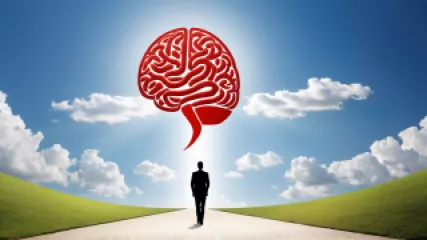Mastering Decision Making: A Step-by-Step Guide
Understanding the Psychology of Decision Making
Decision making is a fundamental aspect of our everyday lives. From simple choices like what to wear or what to eat, to more complex decisions like which job offer to accept or whether to start a business, we are constantly faced with making choices. But have you ever stopped to think about the psychology behind decision making? Why do we make the choices we do, and what factors influence our decisions?
In this step-by-step guide, we will explore the fascinating world of decision making and provide you with valuable insights and strategies to master this essential skill. Whether you want to improve your personal decision making or enhance your professional decision making skills, this guide is for you.
Step 1: Understanding Emotional Decision Making
Emotions play a significant role in the decision-making process. Often, decisions are not solely rational; they are influenced by our emotions and feelings. Understanding the impact of emotions on decision making is crucial to making informed choices.
When faced with a decision, take a moment to reflect on how you feel about each option. Are you excited, fearful, or uncertain? Recognizing and acknowledging your emotions can help you gain clarity and make decisions that align with your values and long-term goals.
However, it's important to note that emotional decision making should be balanced with rational thinking. While emotions provide valuable insights, they should not override logical reasoning. Strive to find a balance between your emotions and rationality when making decisions.
Step 2: Developing Decision Making Skills
Like any other skill, decision making can be developed and improved over time. By honing your decision-making skills, you can make more effective and efficient choices. Here are some key skills to focus on:
- Analytical Thinking: Analyze the pros and cons of each option, consider potential risks and rewards, and evaluate the long-term consequences of your decisions.
- Critical Thinking: Question assumptions, challenge biases, and consider alternative perspectives. This will help you make more objective and well-rounded decisions.
- Problem Solving: Break complex decisions into smaller, manageable problems. Identify the root causes, brainstorm solutions, and evaluate the feasibility of each option.
- Intuition: Trust your gut instincts. Intuition can be a valuable source of information, especially when dealing with complex or ambiguous situations.
- Effective Communication: Seek input from others, listen actively, and consider different viewpoints. Collaborative decision making often leads to better outcomes.
By consciously practicing these skills, you can enhance your decision-making abilities and become a more confident and proficient decision maker.
Step 3: Decision Analysis
Decision analysis is a systematic approach to making decisions under uncertainty. It involves breaking down complex decisions into smaller, more manageable parts and using quantitative and qualitative techniques to evaluate each option.
Here are some common decision analysis tools and techniques:
- Decision Trees: Decision trees are graphical representations that help visualize the possible outcomes and their probabilities. They provide a structured framework for evaluating choices and identifying the optimal path.
- Probability Analysis: Use probability theory to assess the likelihood of different outcomes. Assign probabilities to each possible outcome and calculate the expected value of each option.
- Sensitivity Analysis: Analyze how changes in input variables impact the overall decision. Identify the key drivers of uncertainty and assess their potential effects on the outcomes.
- Decision Matrix: Create a matrix to compare different options based on multiple criteria. Assign weights to each criterion and score each option accordingly. This helps in objectively evaluating and comparing choices.
By employing these decision analysis techniques, you can make more informed and rational decisions, especially when dealing with complex or high-stakes situations.
Step 4: Decision Making Under Uncertainty
Uncertainty is an inherent part of decision making. We often lack complete information or face unpredictable factors that make it challenging to make confident choices. However, there are strategies that can help you navigate decision making under uncertainty:
- Identify and Assess Risks: Identify the potential risks and uncertainties associated with each option. Evaluate the likelihood and potential impact of each risk, and develop contingency plans.
- Scenario Planning: Consider different scenarios and their implications on your decision. Anticipate potential future developments and evaluate how each option would fare in different scenarios.
- Seek Expert Advice: Consult experts or seek advice from individuals with relevant experience or expertise. Their insights can provide valuable guidance in uncertain situations.
- Experiment and Learn: Embrace a mindset of experimentation and continuous learning. Make small, low-risk decisions to gather data and learn from the outcomes before making more significant choices.
By embracing uncertainty and using appropriate strategies, you can make more confident decisions even in unpredictable environments.
Step 5: Decision Making Workshops
Participating in decision making workshops can be a valuable learning experience. These workshops provide a structured environment to practice and improve your decision-making skills while collaborating with others.
During these workshops, you can engage in activities such as case studies, role-playing exercises, and group discussions. These interactive sessions allow you to learn from real-world examples, gain insights from others' perspectives, and receive feedback on your decision-making approach.
Additionally, decision making workshops often incorporate techniques such as brainstorming, mind mapping, and SWOT analysis (Strengths, Weaknesses, Opportunities, Threats). These tools help stimulate creativity, identify alternative options, and assess the strengths and weaknesses of each choice.
Conclusion
Mastering the art of decision making is a lifelong journey. By understanding the psychology behind decision making, developing key skills, utilizing decision analysis techniques, navigating uncertainty, and participating in decision making workshops, you can enhance your decision-making abilities and make choices that align with your goals and values.
Remember, decision making is not about making the perfect choice every time, but rather about making informed and thoughtful decisions that lead to growth and progress. So embrace the process, learn from your experiences, and continue to refine your decision-making skills.






